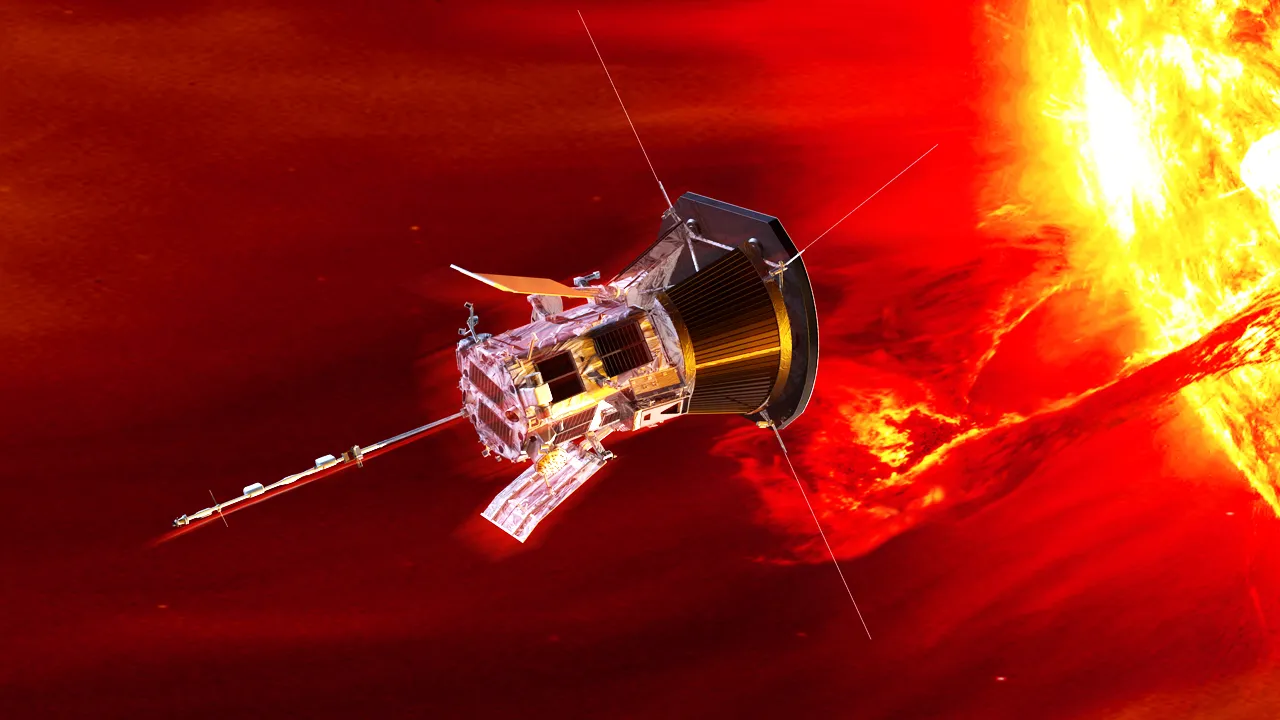In an upcoming historic moment for space exploration, NASA’s Parker Solar Probe is set to race past the Sun at an incredible 195 km/s (435,000 mph) on December 24 next year.
This journey is unprecedented, as no human-made object has gone that close to the surface of the Sun.
The Parker probe will cover around 4% of the distance between Earth and the Sun.
Moon Landing
Dr. Nour Raouafi, the project scientist for Parker, likened this achievement to “almost landing on a star”.
He emphasized Parker’s significance comparable to the 1969 Moon landing.
Launched in 2018, the mission aims to make increasingly close passes of the Sun, with the late 2024 maneuver bringing it within just 4% of the Sun-Earth distance.
1,400C Temperature
Despite facing temperatures up to 1,400C at its closest point, Parker’s strategy involves swift data collection from behind a robust heat shield.
Dr. Raouafi highlighted the importance of this mission, especially in the context of future lunar expeditions.
However, Parker won’t venture closer after December’s close encounter due to the risk of increasing temperature.





